Craft and Technology
Goal
To nurture students into thinkers, innovators, and contributors
Key Programmes
Craft and Technology subjects (Art, Design & Technology, Food & Consumer Education, Nutrition & Food Science) are aligned to the 21st Century Competencies required by students to be thinkers, innovators and contributors. Through coursework, students are exposed to thinking and innovation techniques such as project management, art awareness and appreciation, nutrition planning, food and consumer literacy, problems identification, research, decision making, empathy and safety consciousness so that they are able to contribute to the community.
DESIGN & TECHNOLOGY learning is mainly through design-and-make projects guided by a design process. The design process entails identifying design needs from real-world experiences, generating and developing ideas, and realising the design solution; with research carried out when necessary. Research includes testing ideas through quick mock-ups and evaluating the final design solution with the intended user. In doing so, students acquire related knowledge and develop skills to turn ideas into reality and values like mindfulness, empathy and sensitivity in the areas of social, culture and environment.
Design & Technology emphasises the following:
-
thinking through sketching to generate and to develop design solutions
-
exploration and experimentation of ideas through mock-ups so as to allow students to fail early in seeking a practical and appropriate design solution for the identified user
-
making of the prototype as a cognitive and hands-on endeavour
D&T Programme
Lower Secondary Programme
The lower secondary D&T programme focuses on the development of freehand sketching skills through idea generation and development and offers tactile learning experiences for students to construct prototypes of the developed ideas.
It aims to enable students to:
-
cultivate visual-spatial thinking through sketching, experimenting and prototyping using appropriate materials and basic hand tools/equipment/machines safely,
-
develop an appreciation of function, aesthetics and technology in design through everyday products and their implication on sustainability,
-
exercise judgements for design appropriateness with respect to the users, functionality and the environment,
-
develop confidence and pride through turning ideas into physical objects.
The knowledge, skills and values gained at this level lay the foundation for D&T learning at the upper secondary level. In achieving the above aims, students also develop safe working habits.
Upper Secondary Programme
At the upper secondary level, designing and making are dealt with at greater depth and scope as all students can sketch and make. Students do research to understand and define user needs, explore and develop design solutions, and prototype their ideas using basic han tools/equipment/machines. Such learning activities leverage and build on students’ experiences in design and technology, with a focus on understanding of everyday activities to create possibilities to make life better. In the process, students cultivate creative, critical and reflective thinking and develop design related dispositions and skills.
It aims to enable students to:
-
develop confidence, pride and tenacity through exploring real-world design opportunities for which ideas are developed within a given timeframe;
-
develop the quality of mindfulness, empathy and sensitivity through improving some aspects of their environment in everyday life;
-
embrace uncertainties, complexities and the inherent social dimension of the design process when exploring design opportunities vis-à-vis design ideas;
-
cultivate thinking through doodling and sketching/drawing,
-
experiment and prototype ideas using appropriate materials and tools;
-
build on their innate curiosity and ability to create; and
-
exercise judgements and make evidence-based decisions of technological, aesthetic and economic nature.
In achieving the above aims, students also develop safe working habits.
VISUAL ARTS enables every student to enjoy art, communicate visually, and make meaning through connecting with society and culture and it adopts the multi-disciplinary approach.
Art Programme
Lower Secondary Programme
At the lower secondary level, Art aims to develop students as active artists and informed audience with:
-
Curious minds that are open to exploring and experimenting in art.
-
Critical and inventive thinking in creative expression.
-
Personal voice and capacity to collaborate with others in art.
-
An awareness, interest, and respect for art from diverse social and cultural perspectives.
Students are exposed to not only 2-dimensional art-making. Students get to develop their visual-spatial intelligence through the mixed medium sculptures. These enable students to immerse and explore 3-dimensional constructs to communicate their thoughts, ideas and be adept at understanding and appreciating the form of an object. This is to cultivate a sense of wonder whilst enjoying the process of discovery. Through these experiences, students will be able to perceive, communicate and appreciate.
Upper Secondary Programme
At the upper secondary level, Art aims to develop students as active artists and informed audience with:
-
Confidence to express artistic intent through visual language.
-
Critical, adaptive and inventive thinking to produce and evaluate creative resolutions.
-
Personal voice and capacity to reflect on self in relation to others in art.
-
An understanding of, and respect for diverse social and cultural perspectives.
The focus is on Studio Practice to convey the three big ideas that are central to Art – Art helps us to see in new ways; Art tells stories about our world; Art influences how we live. To participate in art making and conversations about artworks, students need to acquire knowledge, skills and understanding across four areas of Learning Content – art forms and media, visual qualities, visual strategies and design concepts, context and artistic processes. The four areas interact and influence each other in dynamic ways and serve as entry points to making, thinking and talking about art.
Studio Practice engages students in the creation of artworks. Students hone their observation skills, learn to discriminate visual qualities and give form to their ideas and experiences when they are engaged in art making. The Studio Practice provides opportunities for students to acquire a working understanding of various art elements and principles. It also develops competency in manipulating various art media for self-expression. Students would be given opportunities to explore a good range of media and experiment with different techniques in their studio practice.
NUTRITION & FOOD SCIENCE aims to build a strong foundation in understanding the link between nutrition and good health, whereby students will be cognisant of making informed food choices. Students will also be able to apply food science principles in the area of food preparation and cooking in creating healthier food products. At the same time, food sustainability issues in Singapore will be introduced to create awareness of the nation’s concern on food security. Through these experiences, students are nurtured to be concerned citizens who take an active role in bettering the lives of those around them through their knowledge in nutrition and health, food literacy and food science.
NFS Programme
Lower Secondary Food & Consumer Education
The lower secondary programme aims to:
-
understand the importance of nutrition and food safety and lead a healthier lifestyle proactively,
-
apply basic culinary science in preparing healthier food to meet the needs of target groups,
-
manage resources optimally and sustainably,
-
make responsible and informed decisions for self, family and the community.
In achieving the above aims, students should demonstrate the attitudes of confidence, curiosity, empathy, open-mindedness, prudence, resilience, respect, and responsibility, and develop analytical skills, communication, creative thinking, decision-making, reflective thinking and culinary skills.
Upper Secondary Nutrition & Food Science
The upper secondary programme delves at a deeper level on:
-
the principles of nutrition and concept of a balanced diet in meal planning using nutritional tools and modification of recipes,
-
examining the different characteristics of food,
-
investigating and applying scientific principles for food preparation,
-
developing critical thinking and culinary skills as they apply their learning in solving diet-related health problems.
As a department, various ways are explored to give back to the Community:
-
Collaboration with PAssionArt to spruce up the community with Artwork as well as co-organizing community events
-
Working with community activity centres through Service Learning, and
-
Designing with a Purpose through designing and making toys, in support of the Art unit’s community work
Highlights / Achievements
|
Year |
Competition / Programme |
Highlight / Achievement |
|
2024 |
IDE Series Singapore Competition (IDE Challenge) |
Team:
Awarded Second Prize |
|
2024 |
STEM Challenge – Cardboard Chair |
Finalists:
|
|
2024 |
Real-World Co-design Platform, a programme in partnership with DesignSingapore Council (Dsg) and industrial experts from Orcadesign, with support from James Dyson Foundation (JDF) and Commonwealth Secondary School |
Team:
Team:
Team:
Team:
Awarded Special Mention |
|
2023 - 2024 |
Ceramics workshop Best Pinch Bowl Design Competition 2024 |
All Secondary Two students created their own animal-inspired pinch bowl design (done during D&T lesson) to plate their sauce (during FCE lesson) during Student Learning Fest (Art).
Xuanie Tan Yin Xuan, 2 Respect (2024) Awarded First Prize
Iman Delysha Binte Abdullah, 2 Soar (2024) Awarded Second Prize
Lim Jia Xuan, 2 Innovate (2024) Awarded Third Prize |
|
2023 |
3D Modelling Competition organised by Rocket Labs in collaboration with Hope Technik Pte Ltd |
Dai Jinheng, Jeremy, 3E4 (2023) Awarded First Prize
Yoong Jia Yi, 3E4 (2023) Awarded Second Prize
Lin Jian Siang, 3E4 (2023) Awarded Third Prize |
|
2023 |
Live On Festival (LOF)
|
Lin Xi, 3E5 (2023)
Mixed media artwork titled Rich in biodiversity Erindianz Amellia Binte Suriyan, 3E5 (2023) Awarded Merit, School Category, 2023 Mixed media artwork titled HEARTfelt Connections |
|
2023 - present |
Organic Vegetable Farming workshop |
All Secondary Three D&T and NFS students |
|
2022 |
MOE D&T Awards |
Claudine Toh En Ya, 4E3 (2021) Shortlisted entry |
|
2021 - present |
Junior Chef Culinary Competition
Culinary enrichment workshops
Healthy eating workshop |
Interested students who registered |
|
2020 |
Singapore Youth Festival (online exhibition) |
Art works exhibited |
|
2018 |
MOE D&T Awards |
Wu Jiajun Awarded Creative Adaptation |
|
2016 |
MOE D&T Awards |
Tan Jia Jin Awarded Creative Innovation |
Craft & Technology Teachers
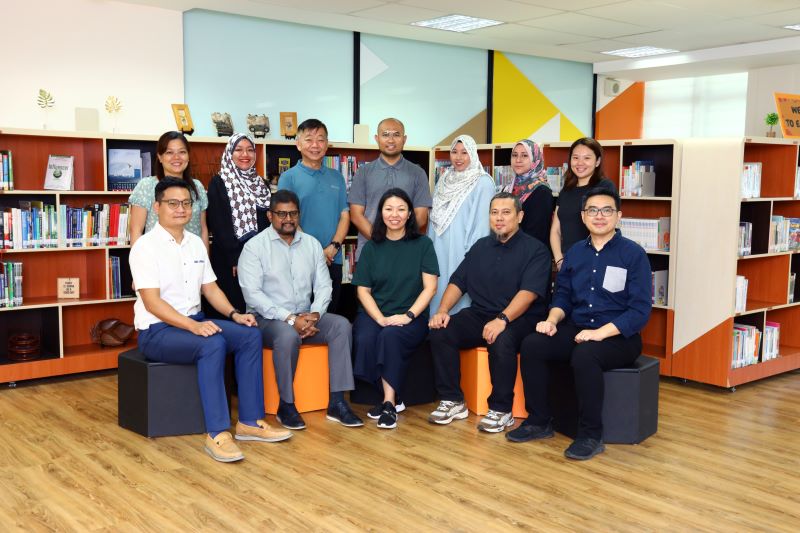
Photos
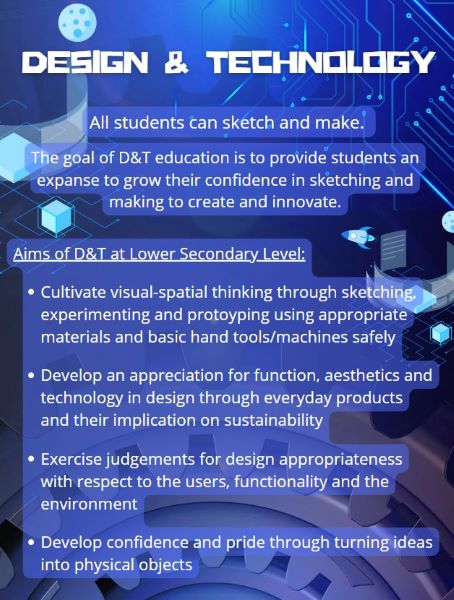
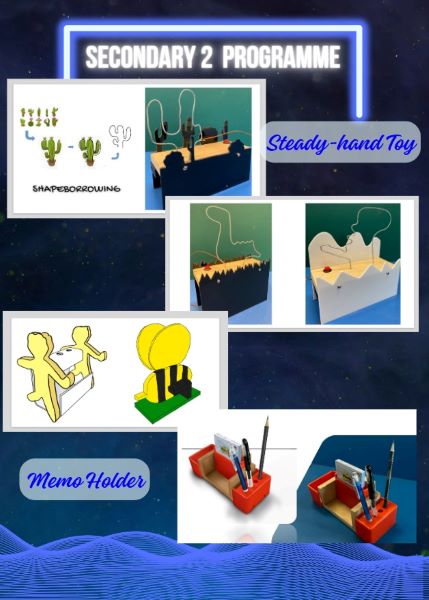
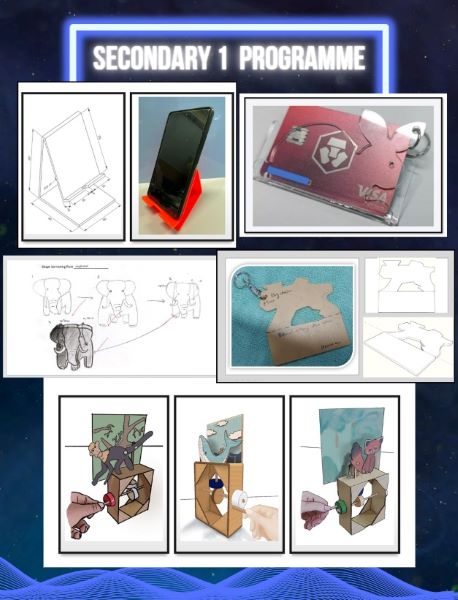
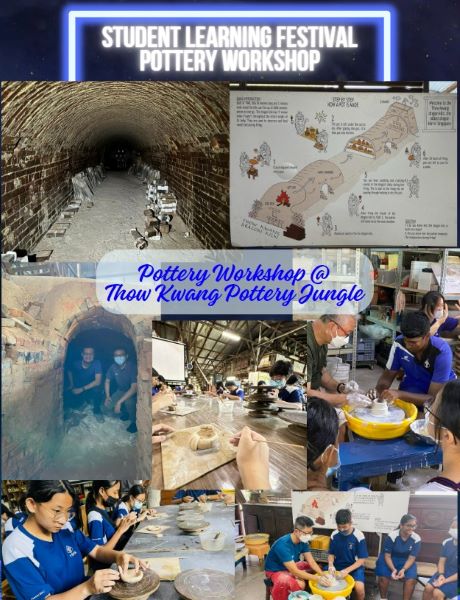
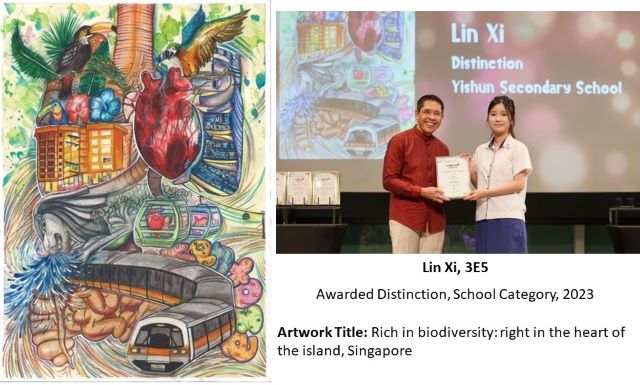
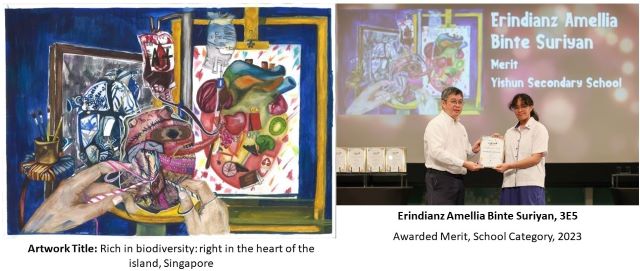
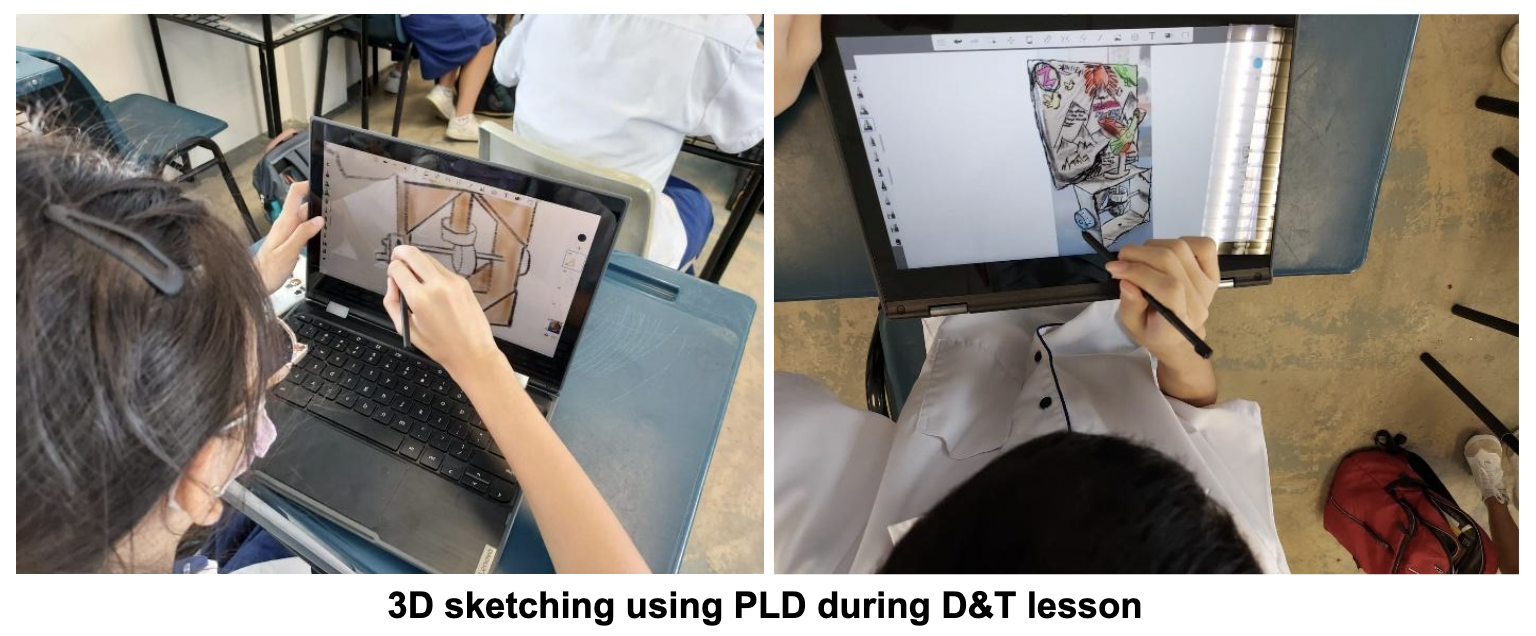
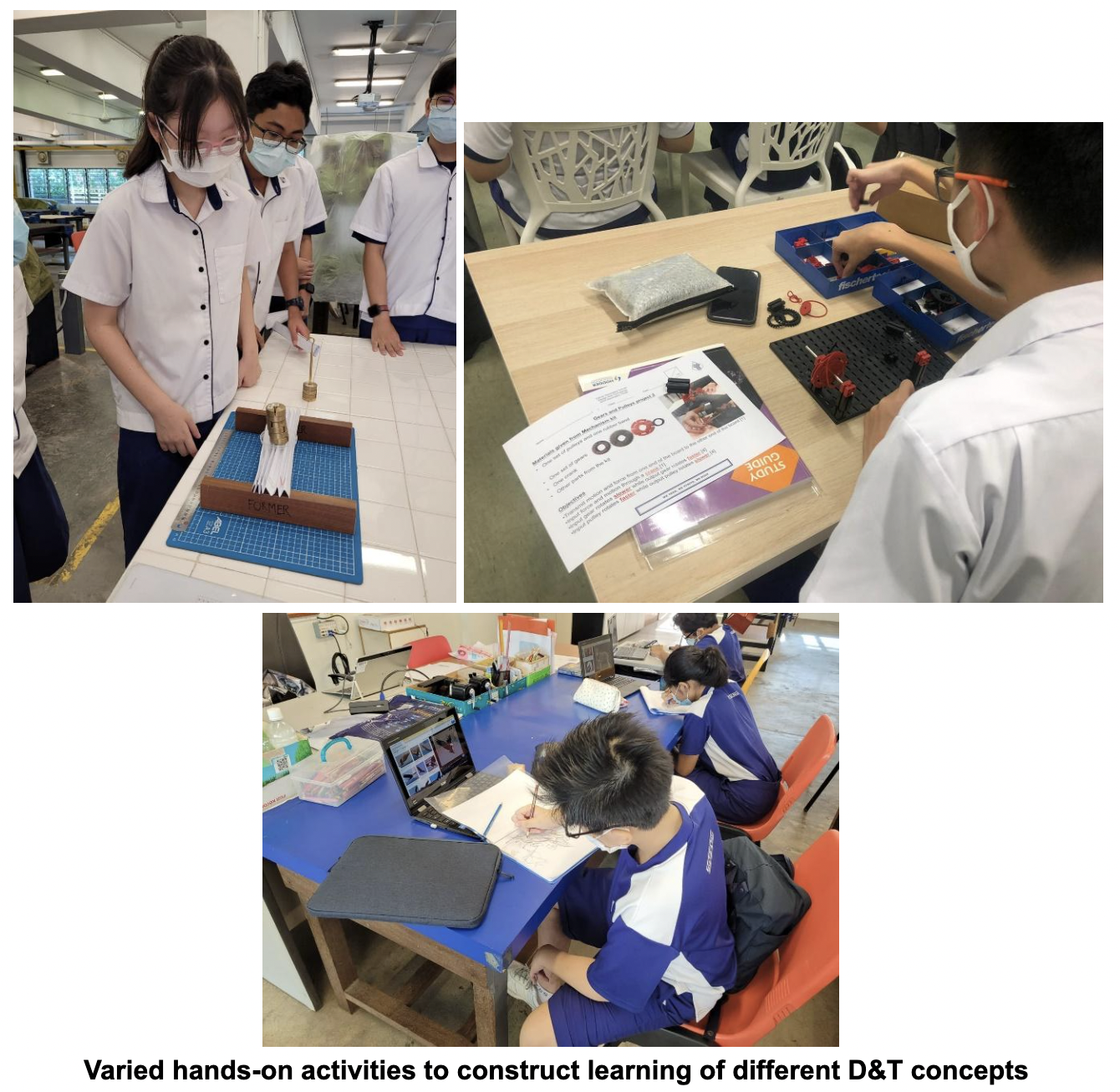
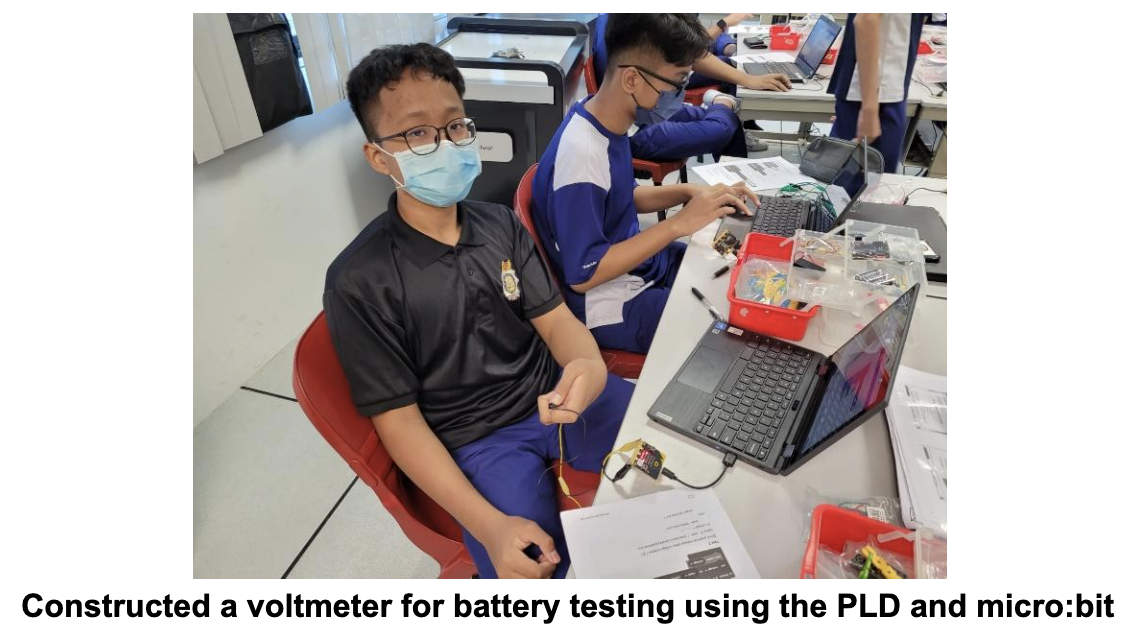
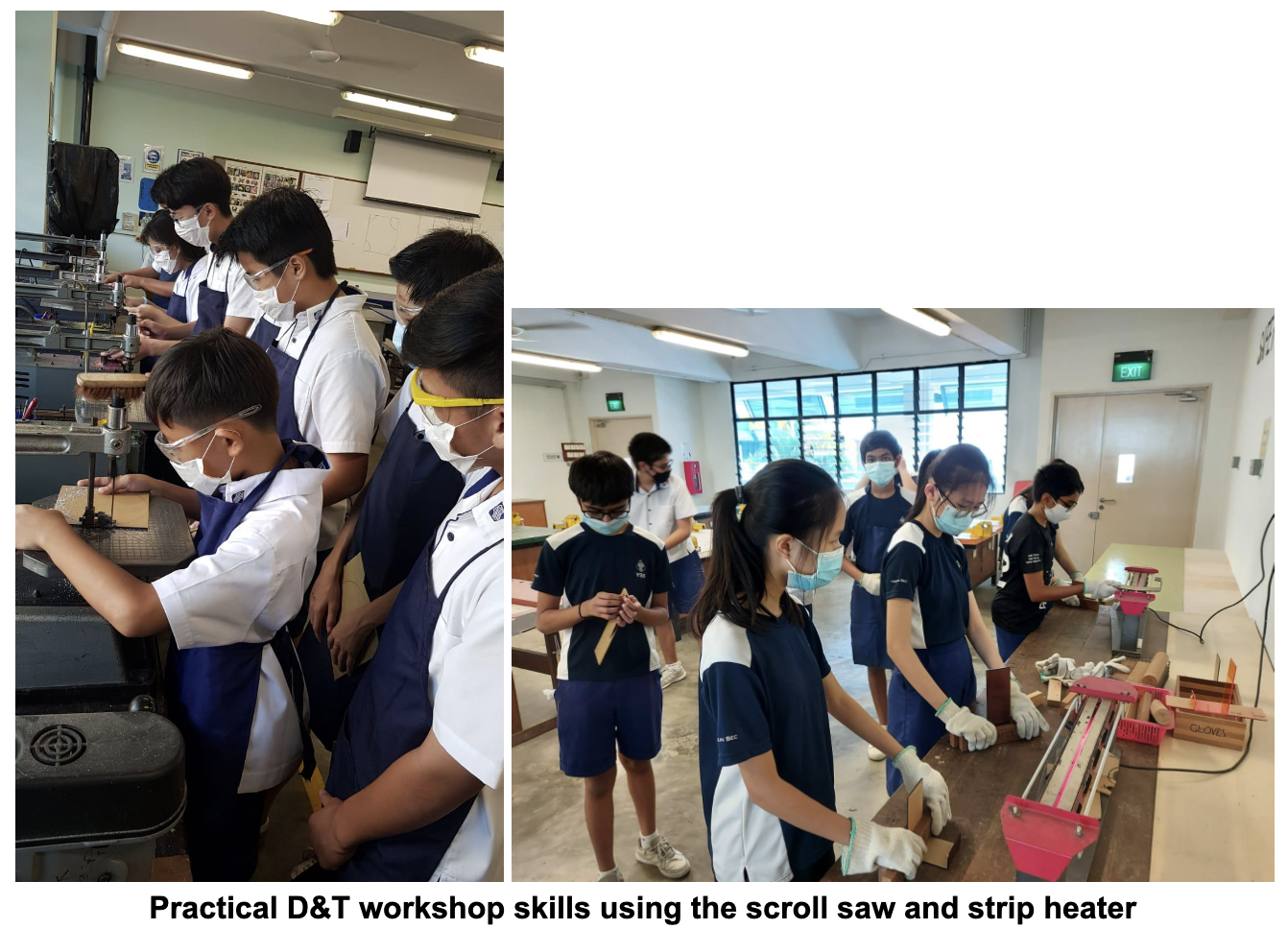
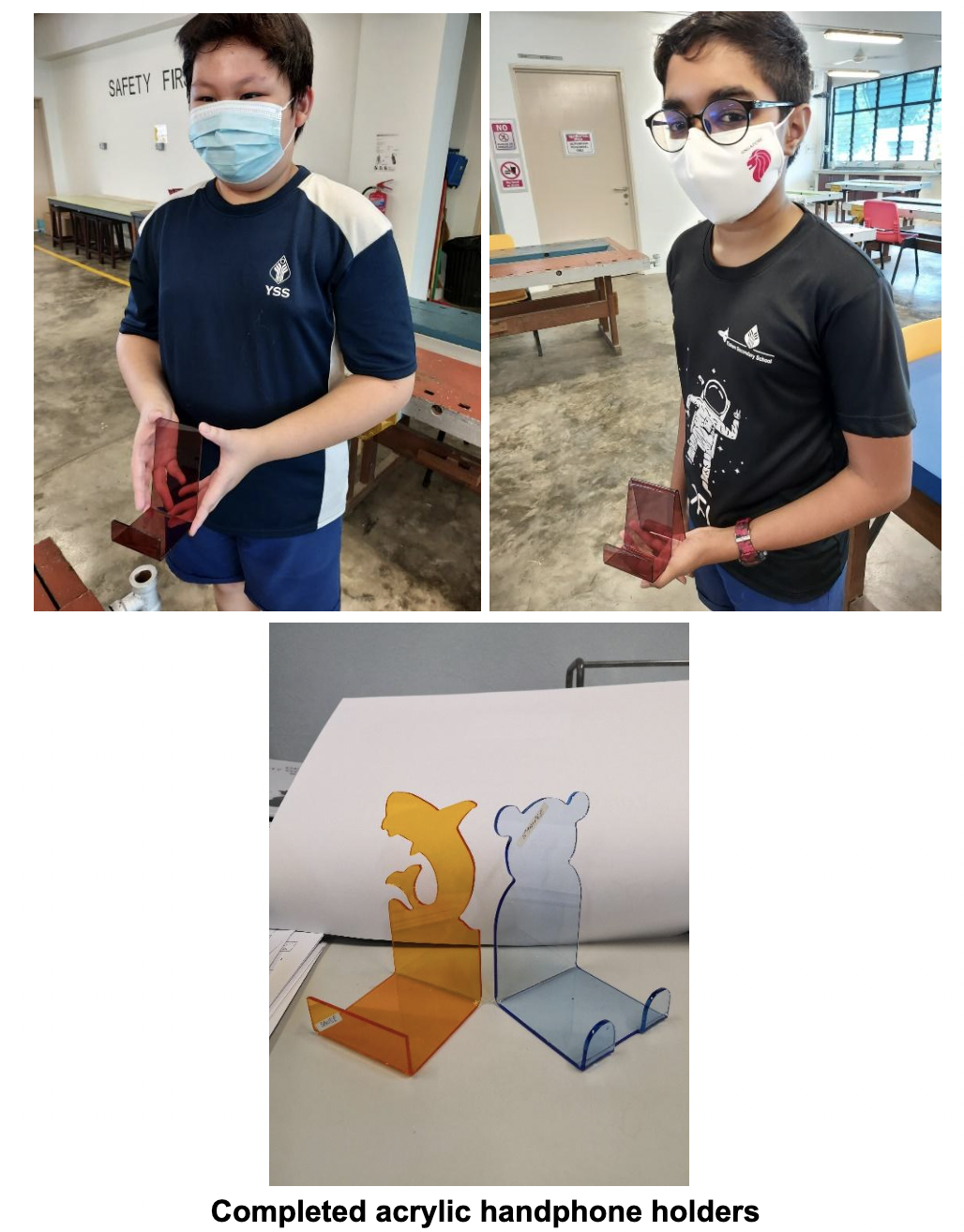
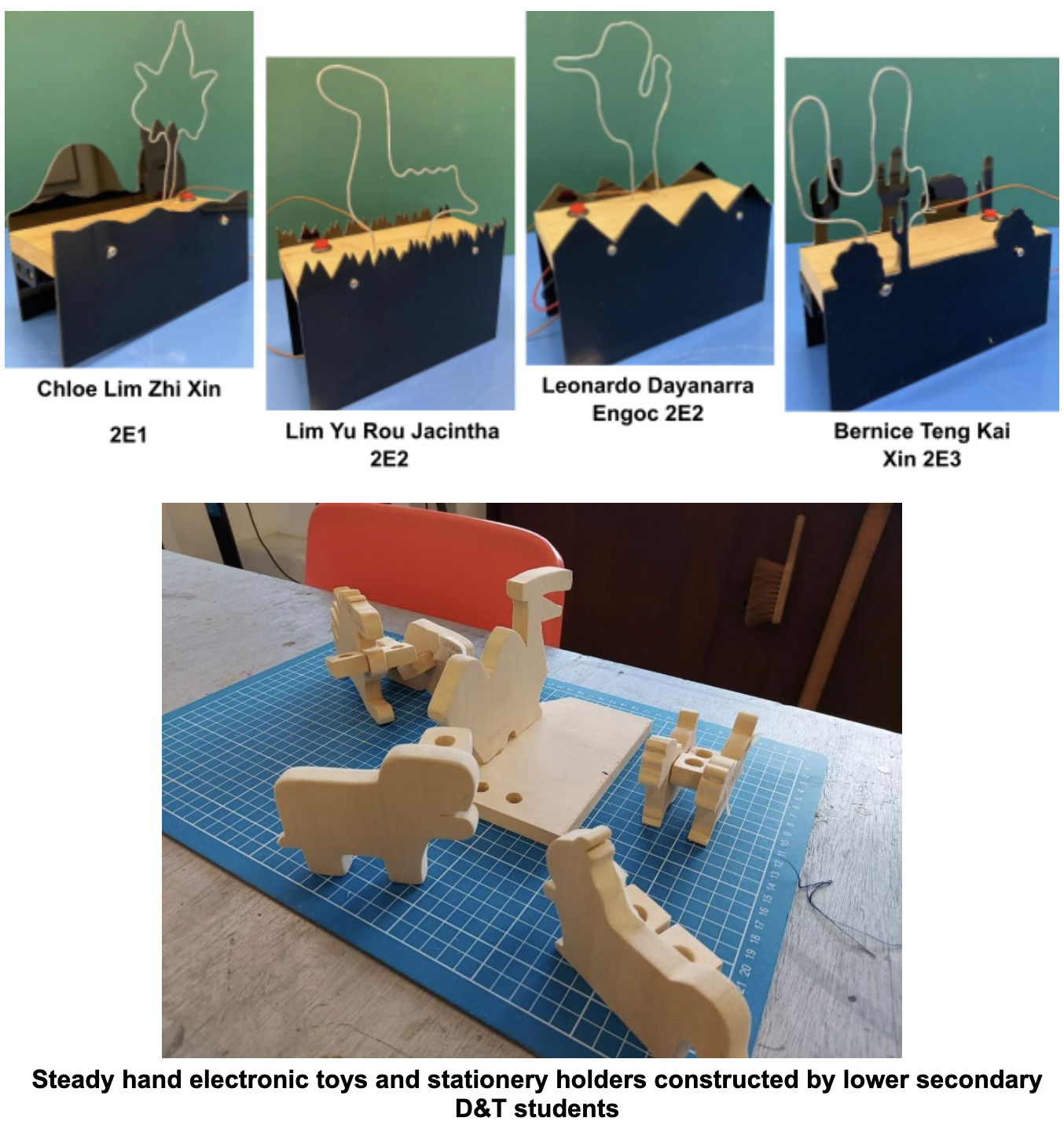
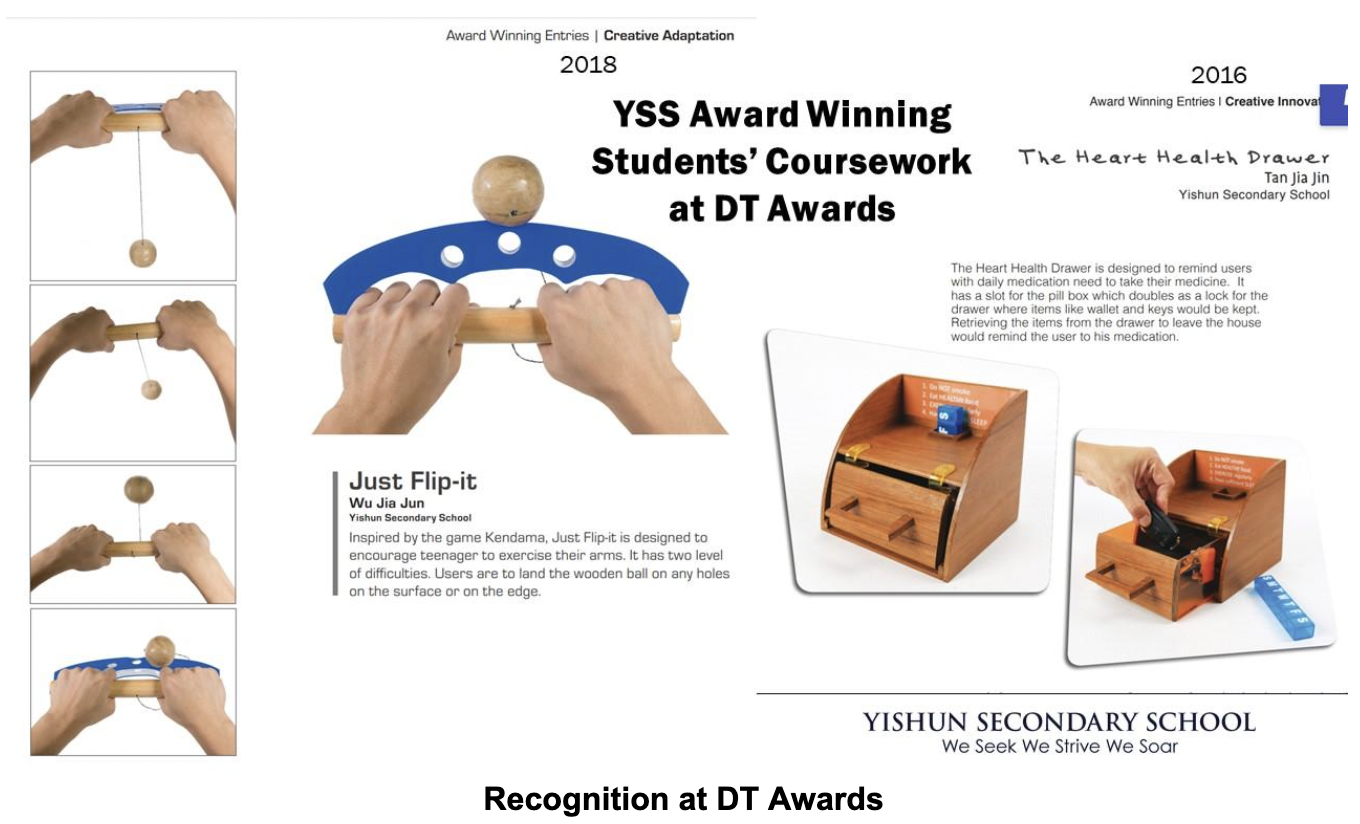

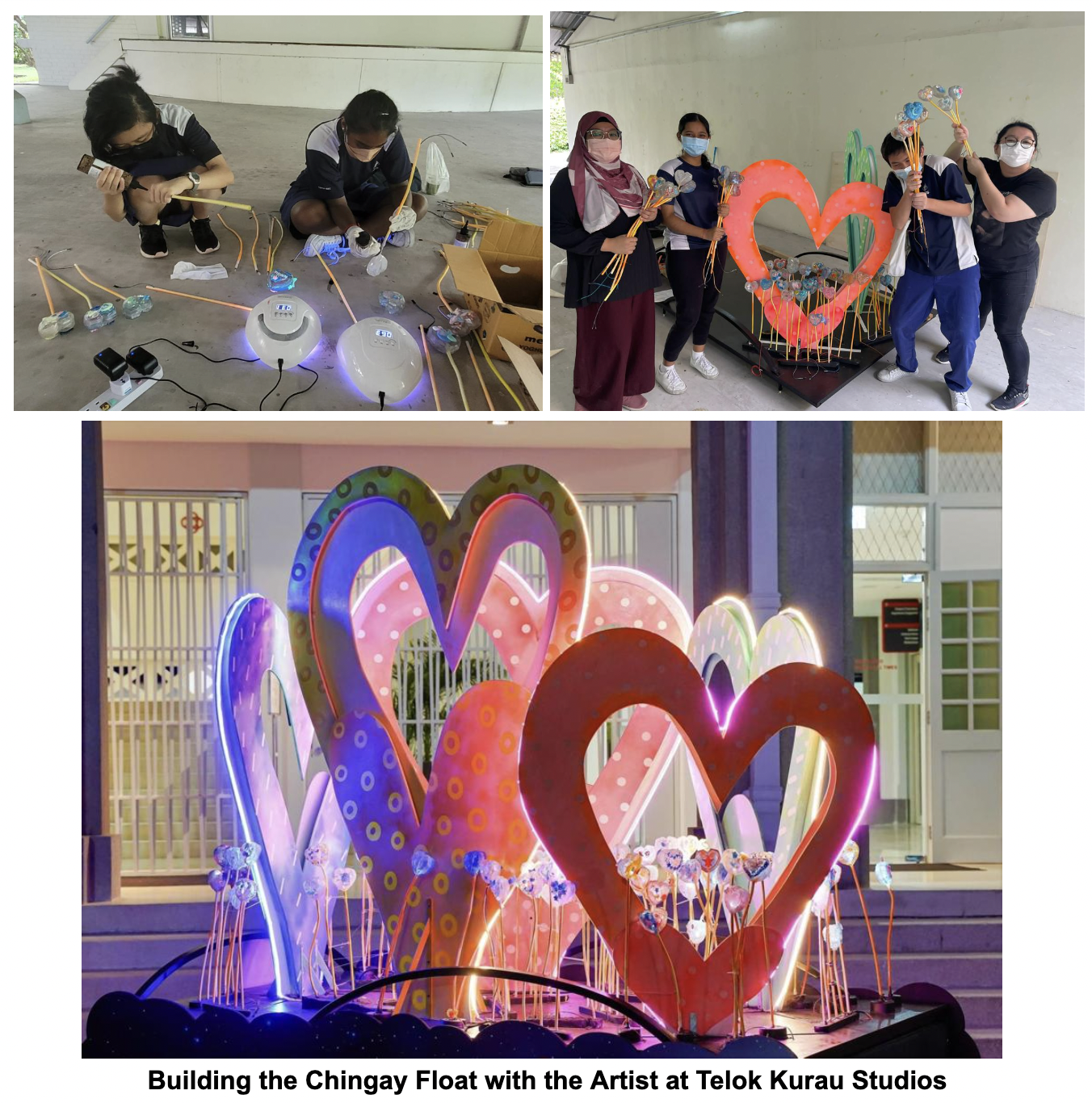
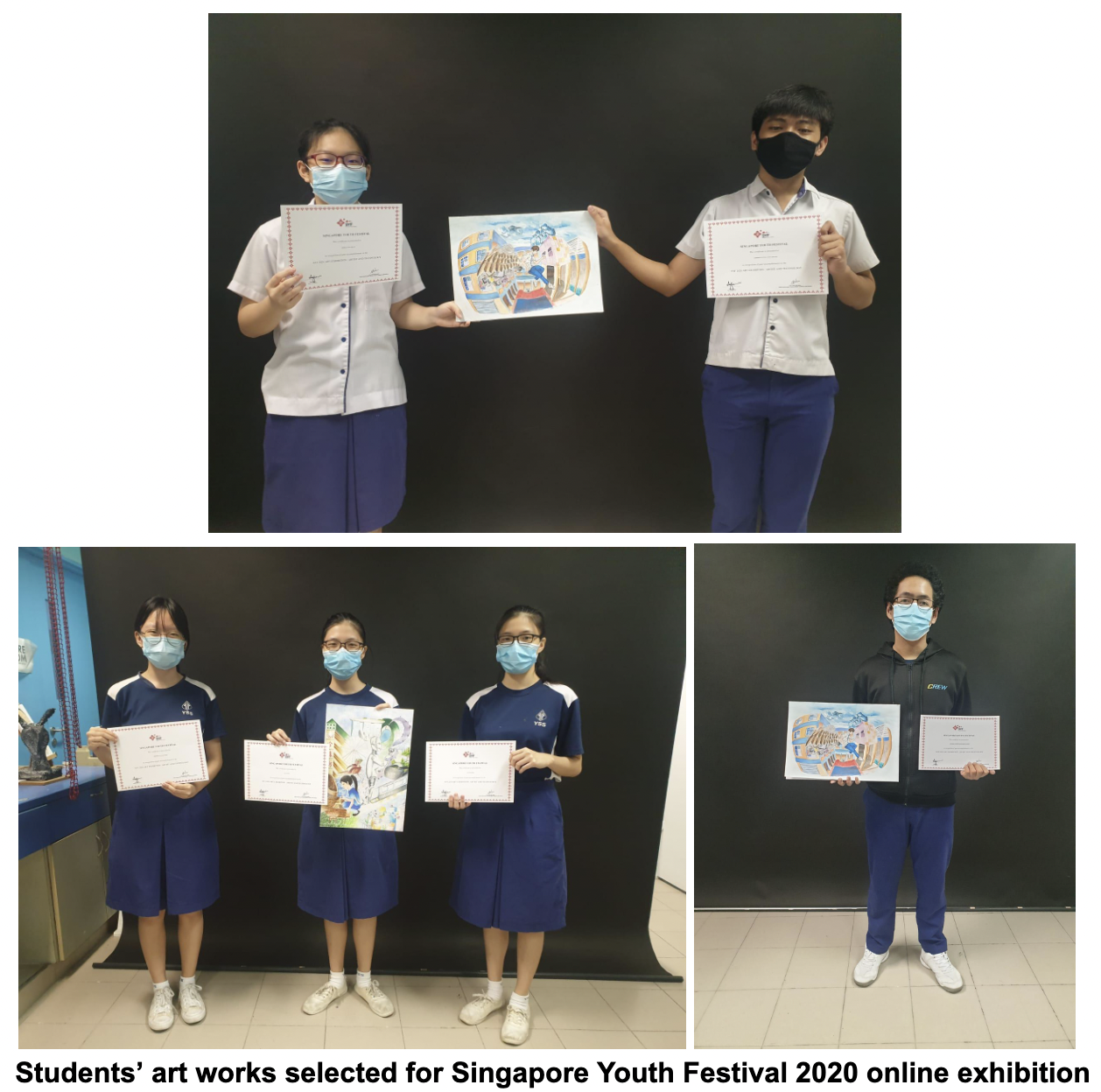
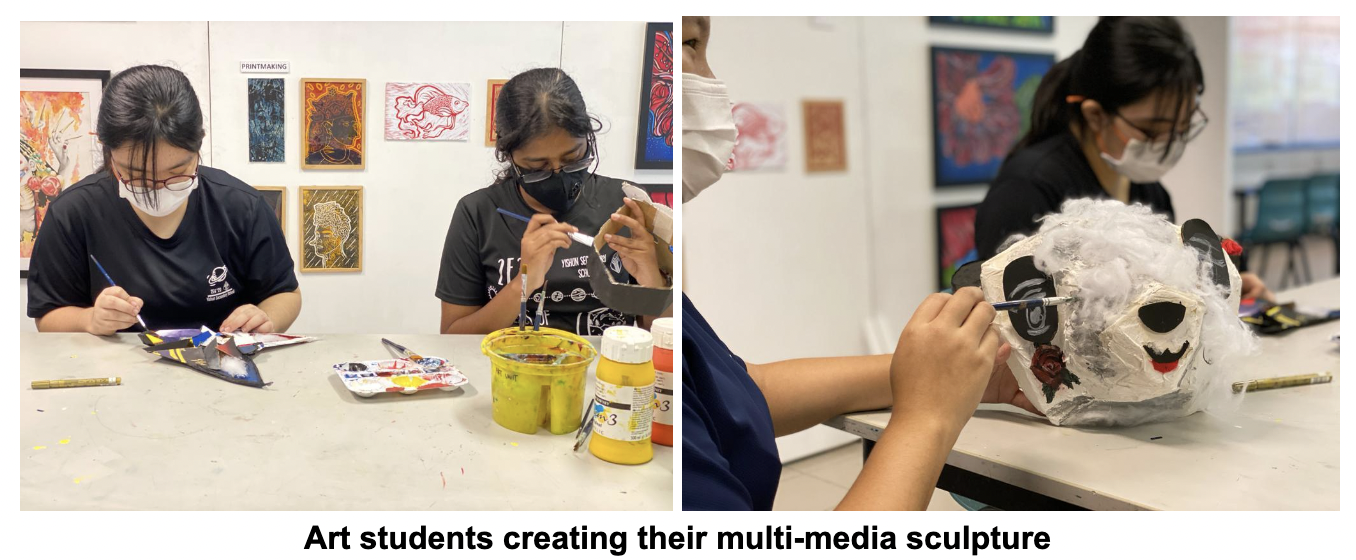
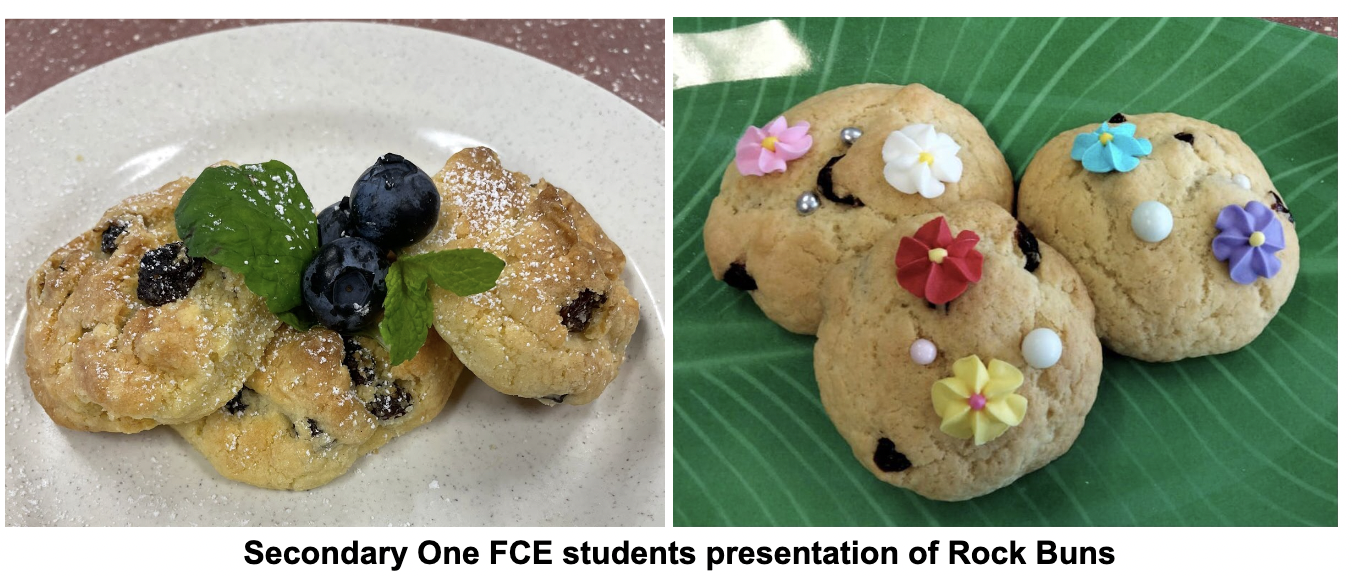
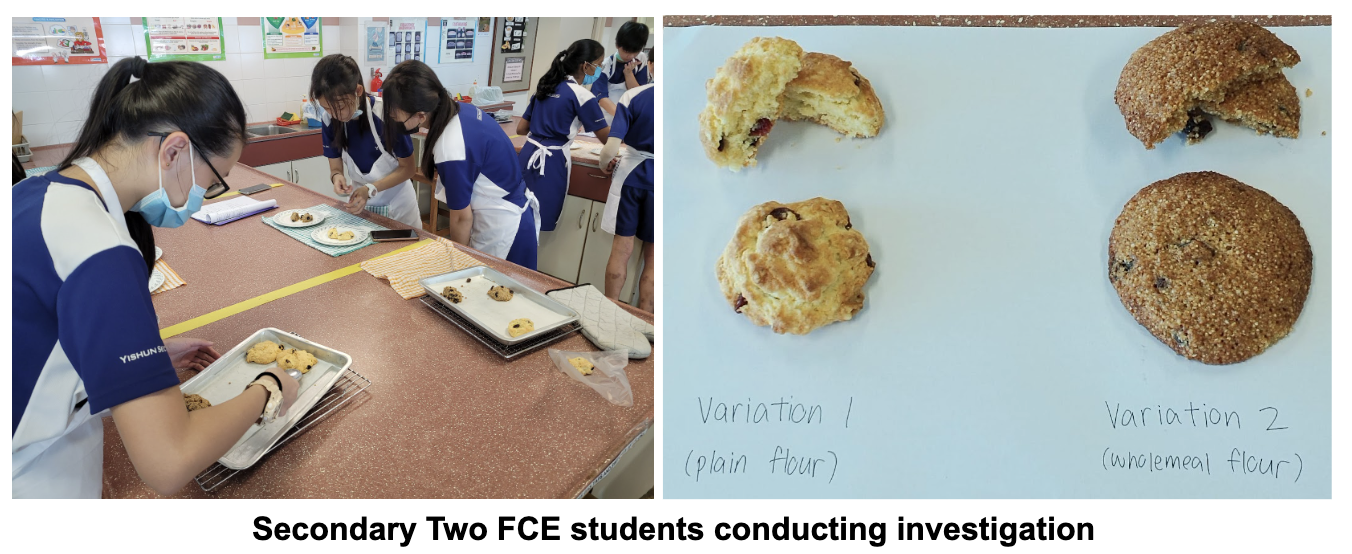
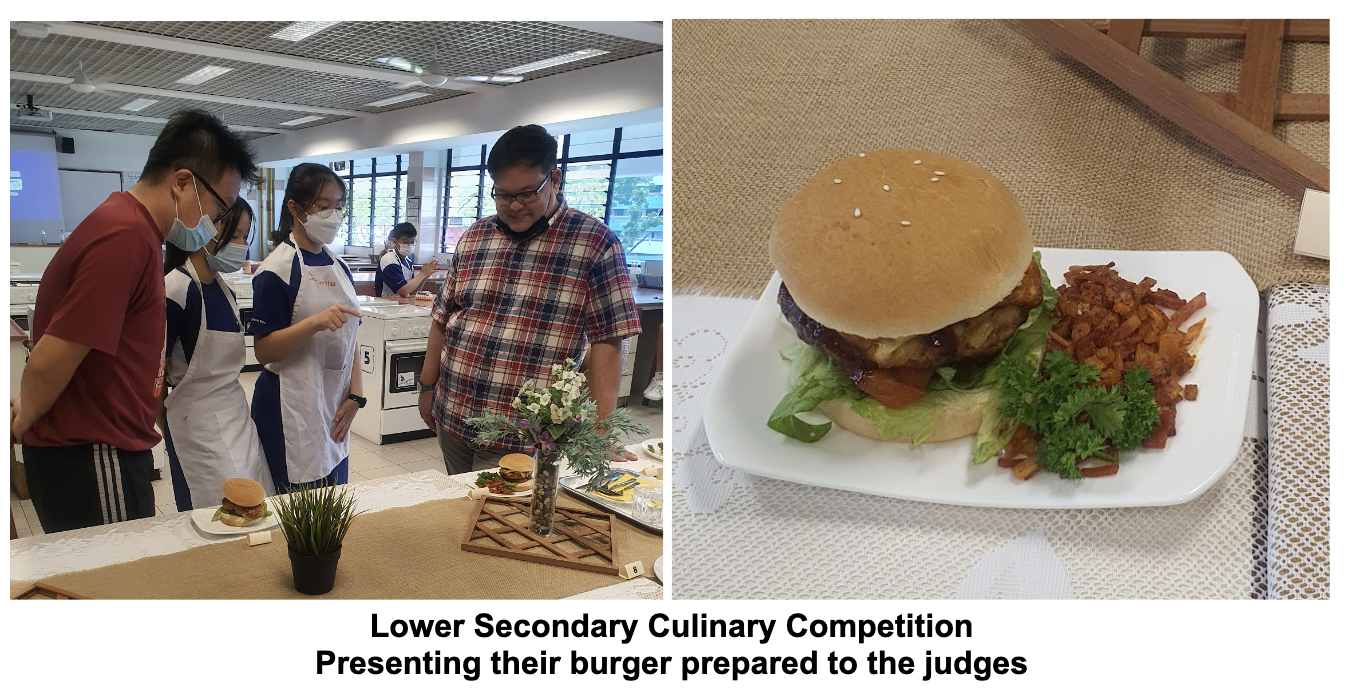
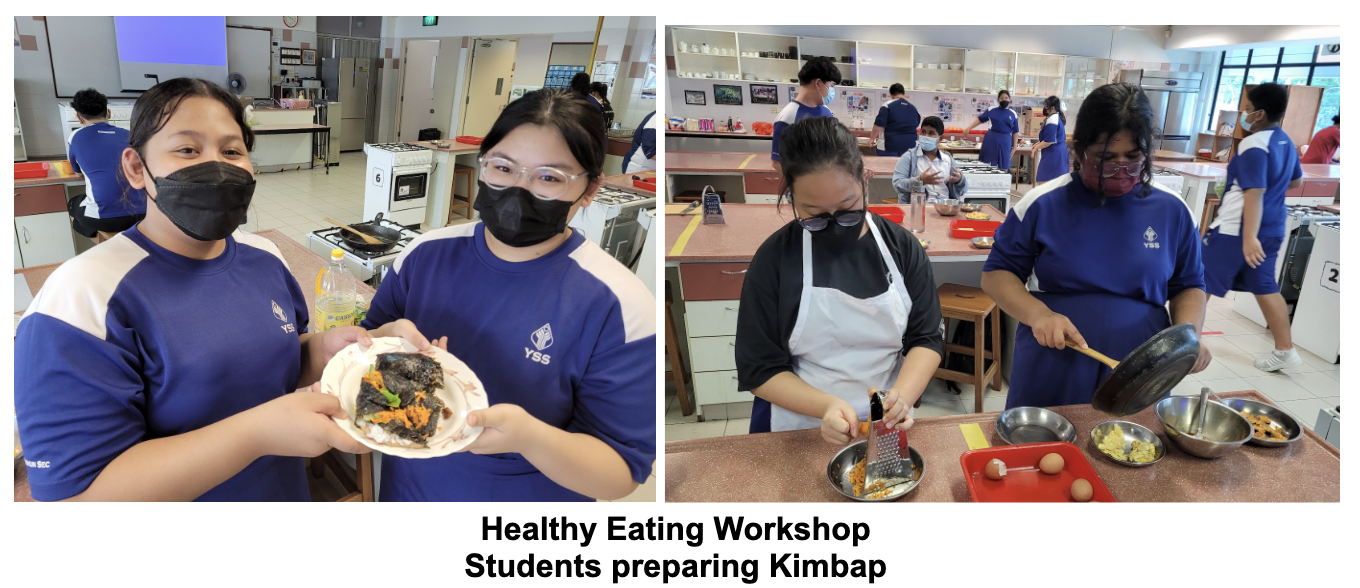
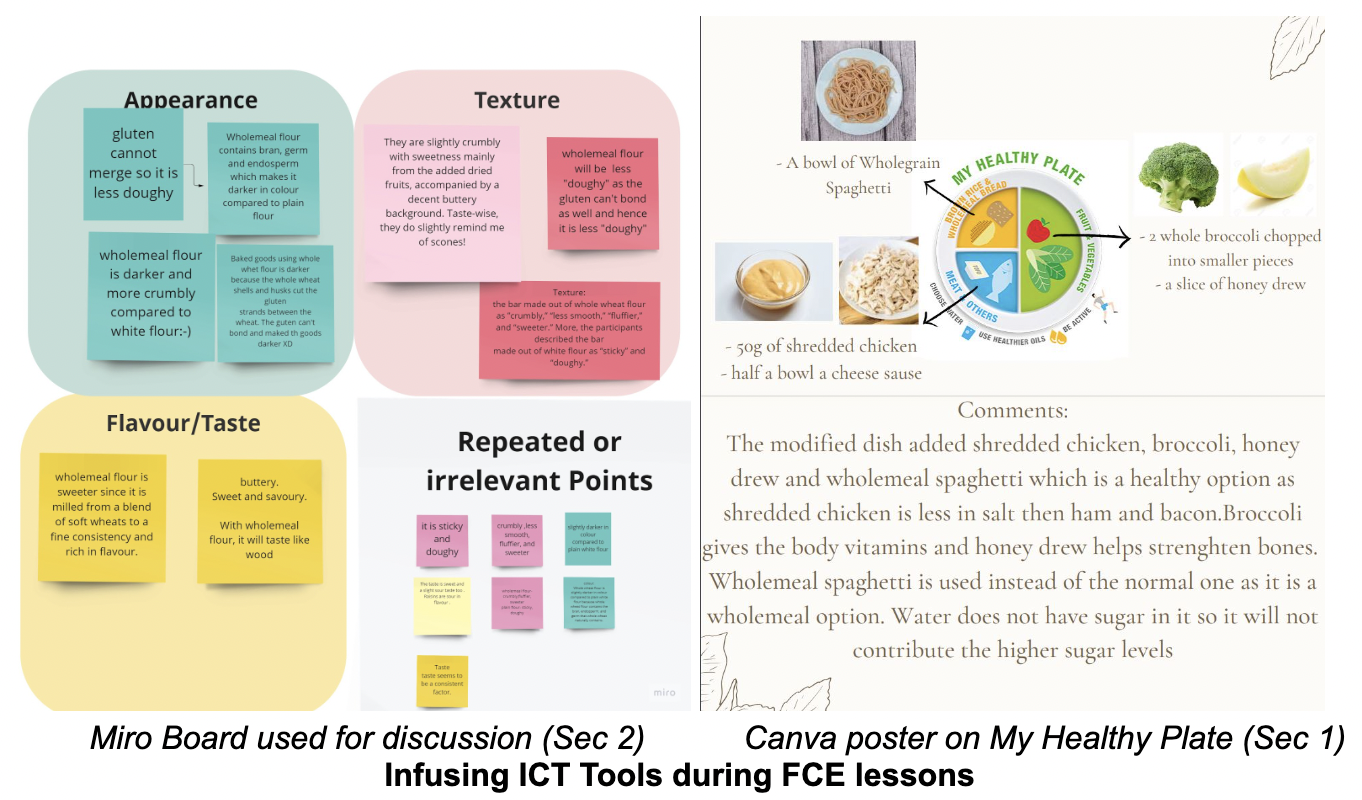
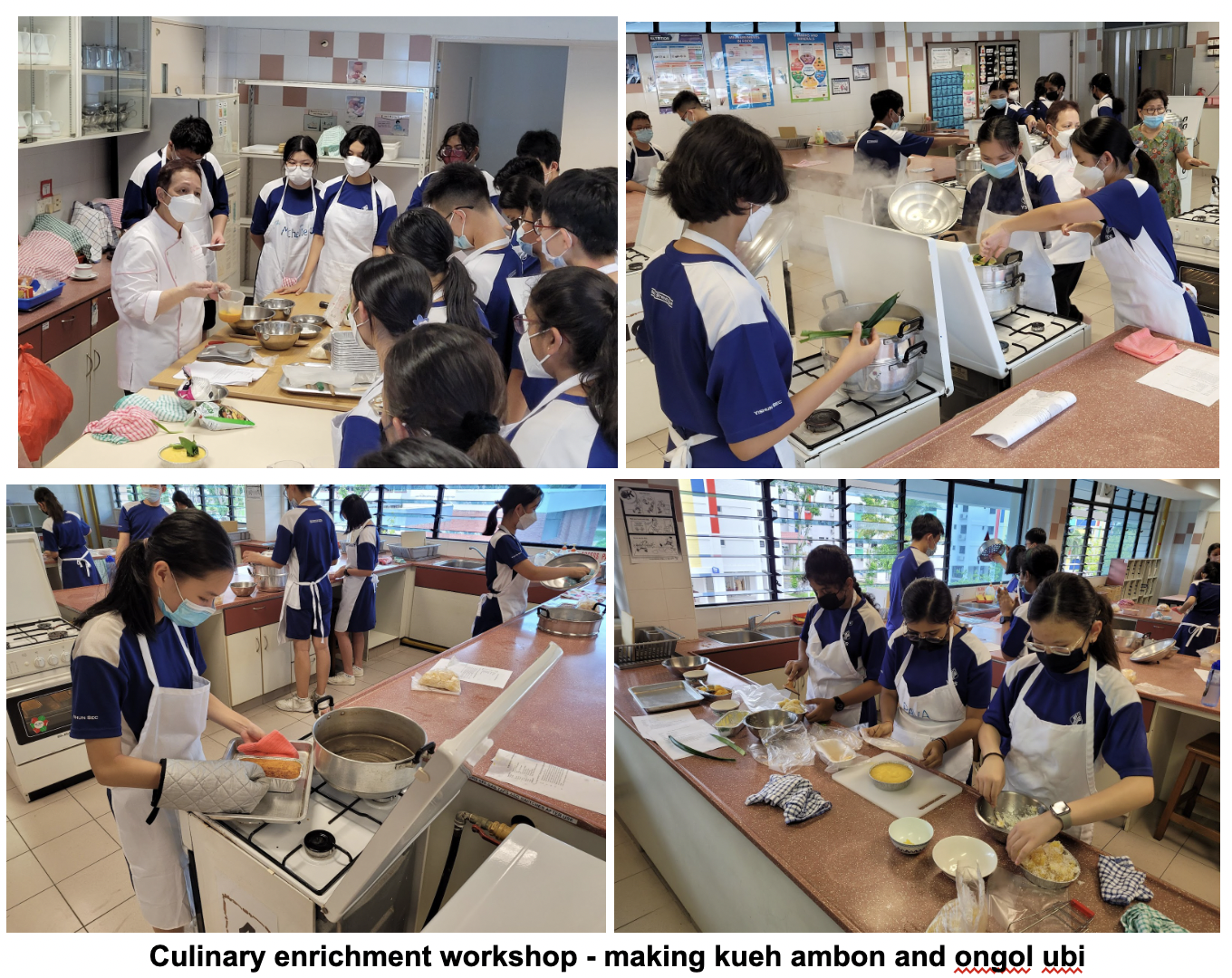
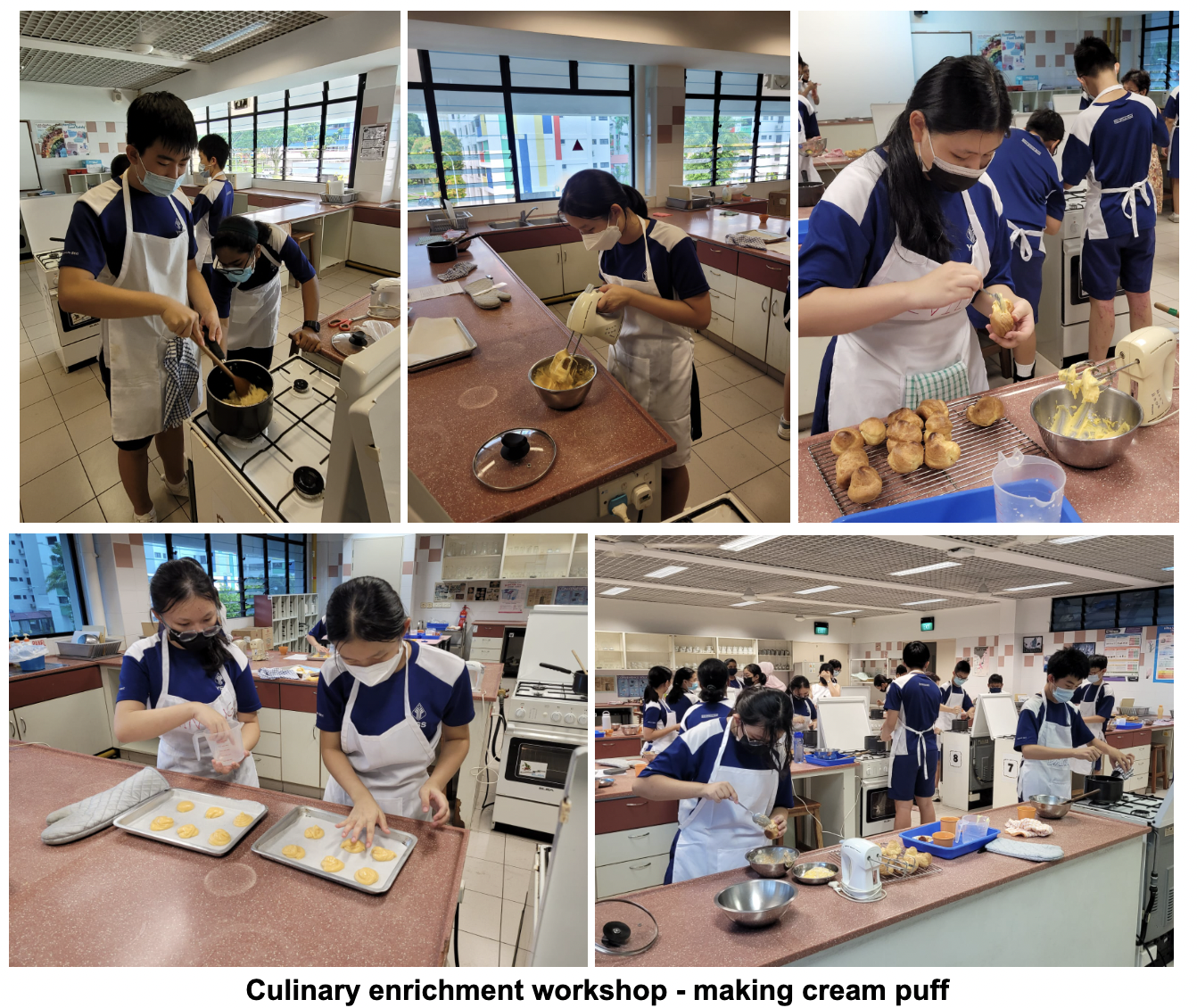
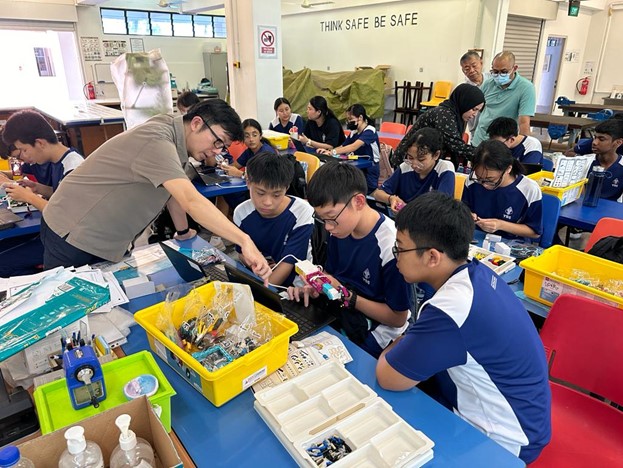
D&T students learning to construct and program a robotic arm that
can grip blocks
Constructed a voltmeter for battery testing using the PLD and micro:bit
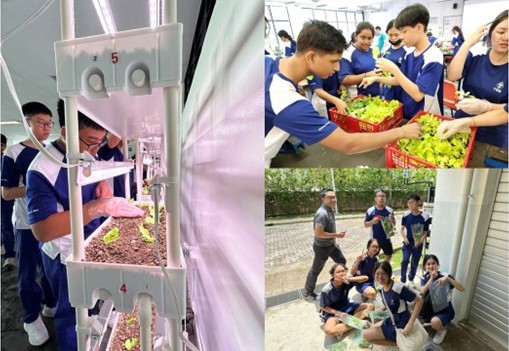
Organic Vegetable Farming Programme for D&T and NFS students

